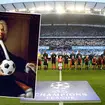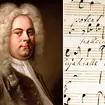Handel - Music for the Royal Fireworks
Handel's jubilant Music for the Royal Fireworks is music fit for a king - George II, in fact, who attended the first performance on the River Thames in 1749.
Handel composed his Music for the Royal Fireworks while working for George II in 1749. The Treaty of Aix-La-Chapelle was signed to mark the ending of the War of the Austrian succession and the piece was composed to accompany the royal celebrations. A favourite among the royals, Handel, who had written the wonderful Coronation Anthems for George II and the Water Music for his father, George I, was commissioned to provide the music.
The build up was huge; top-class concerts open to the general public were virtually unheard of at the time and excitement was so great that tickets were sold for a public rehearsal of the music in Vauxhall Pleasure Gardens. Around 12,000 people flocked to the performance in Green Park in April 1749, resulting in a traffic jam that closed London Bridge for several hours.
Despite the frenzy of preparation, no one had factored in the possibility of bad weather. So naturally it rained, most of the fireworks refused to light, and the few that did light caused the staging to catch fire. There’s no record of what Handel made of it all, although a contemporary, Horace Walpole, reported that the evening was 'pitiful and ill-conducted' but 'very little mischief was done, and but two persons killed’.
None of this put Handel off. The music itself, taking the form of a Baroque dance suite in six movements, had been well received. Handel cannily re-scored it for a later indoor performance, incorporating strings into the orchestra (the King had insisted that he write the suite for percussion, brass and winds only). The composer thus got what he’d wanted all along and the music secured its place to stand beside the Water Music and Coronation Anthems as one of his most famous works.












